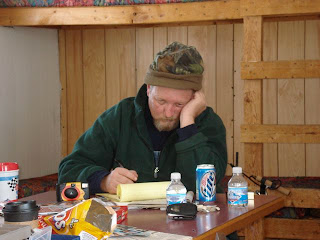All Together
World War I started in July, 1914, after the assassination of Austrian Archduke Franz Ferdinand.
At that time Paul W. Tibbets Jr. was not yet alive. He was born seven months later on
When Paul was still three years old, an armistice was signed which ceased hostilities between
The Treaty of Versaille, officially ending World War I, was signed on
Before Paul was five, before he knew what it really meant, American President Woodrow Wilson proclaimed November 11 as the first commemoration of Armistice Day with these words:
“To us in America, the reflections of Armistice Day will be filled with solemn pride in the heroism of those who died in the country’s service and with gratitude for the victory, both because of the thing from which it has freed us and because of the opportunity it has given America to show her sympathy with peace and justice in the councils of the nations…”
WWI was so huge that it was romantically considered “the Great War” to some, optimistically thought of as “the War to End All Wars” by others.
Reflecting the relieved mood of a grateful nation, a site for the Liberty Memorial was dedicated in
“In honor of those who served in the world war in defense of liberty and our country.”
With typical speed and after-the-fact thoughtfulness, the U.S. Congress officially recognized the end of WWI by passing a resolution in 1926 which invited everyone to honor and remember November 11th.
By then, Paul Tibbets Jr. was 11 years old.
In 1937, at the age of 22, Tibbets enlisted in the U.S. Army Air Corps. That same year,
When 2nd Lt. Tibbets turned 23, Congress happily passed 52 Stat., 5
A year later in 1939,
By 1940,
While
By then, 26 year old Paul W. Tibbets Jr. was known as one of the finest bomber pilots in the U.S Eighth Air Force. He was in the lead on the first bombing raids over
About four hard years later, the Germans surrendered to the Allies in May, 1945.
The then 30 year old Colonel Tibbets piloted a shiny B-29 named after his mother, Enola Gay, from tiny
Two days later, the Russian Army attacked Japanese positions in
The Japanese surrendered on August 15 and the Japanese Instrument of Surrender was signed on
World War II was over before Paul Tibbets Jr. turned 31 and he’d had a hand in it.
On
In 1966, at the age of 51, Brigadier General Paul W. Tibbets Jr. retired from the U.S. Air Force. During his nearly 30 years of service he had been rated as a Command Pilot and earned military awards including the Distinguished Service Cross, the Distinguished Flying Cross (which is only awarded for acts subsequent to
Tibbets reportedly remarked later in life that he had no regrets about his historic mission over
He may have been confident in the way he completed all of his duties yet he was dogged by that lone act for all his remaining days. He may have truly believed he was just doing his job well, a job that ultimately prevented even greater tragedy, but other people saw him differently. He was singled out not in the least because he was the first to employ a nuclear weapon. Wild rumors about his sanity chased him. Pointed accusations, confounding historical revisions and “damn big insults” were traded back and forth around him for years.
A week ago, on the first day of the 11th month in the year 2007, his trail ended. At that age of 92, retired Brigadier General Paul W. Tibbets Jr. died at his home in
According to family and friends, Tibbets requested his remains be cremated. He asked for no public funeral ceremony. He wanted no headstone and declined any monument to his life or any further recognition of his service to our nation. He wished for no gravesite to become a rallying point for war protestors or anti-nuclear activists. As secure as he was with his legacy, he knew others were not. So he made his final sacrifice, that being his right to even a common burial.
Fortunately, Paul Tibbets Jr. doesn’t need a grave or a headstone. He has his day, instead.
Veterans Day: A celebration to honor
For
Cheers,
Mb


0 Comments:
Post a Comment
Subscribe to Post Comments [Atom]
<< Home